Download to read offline
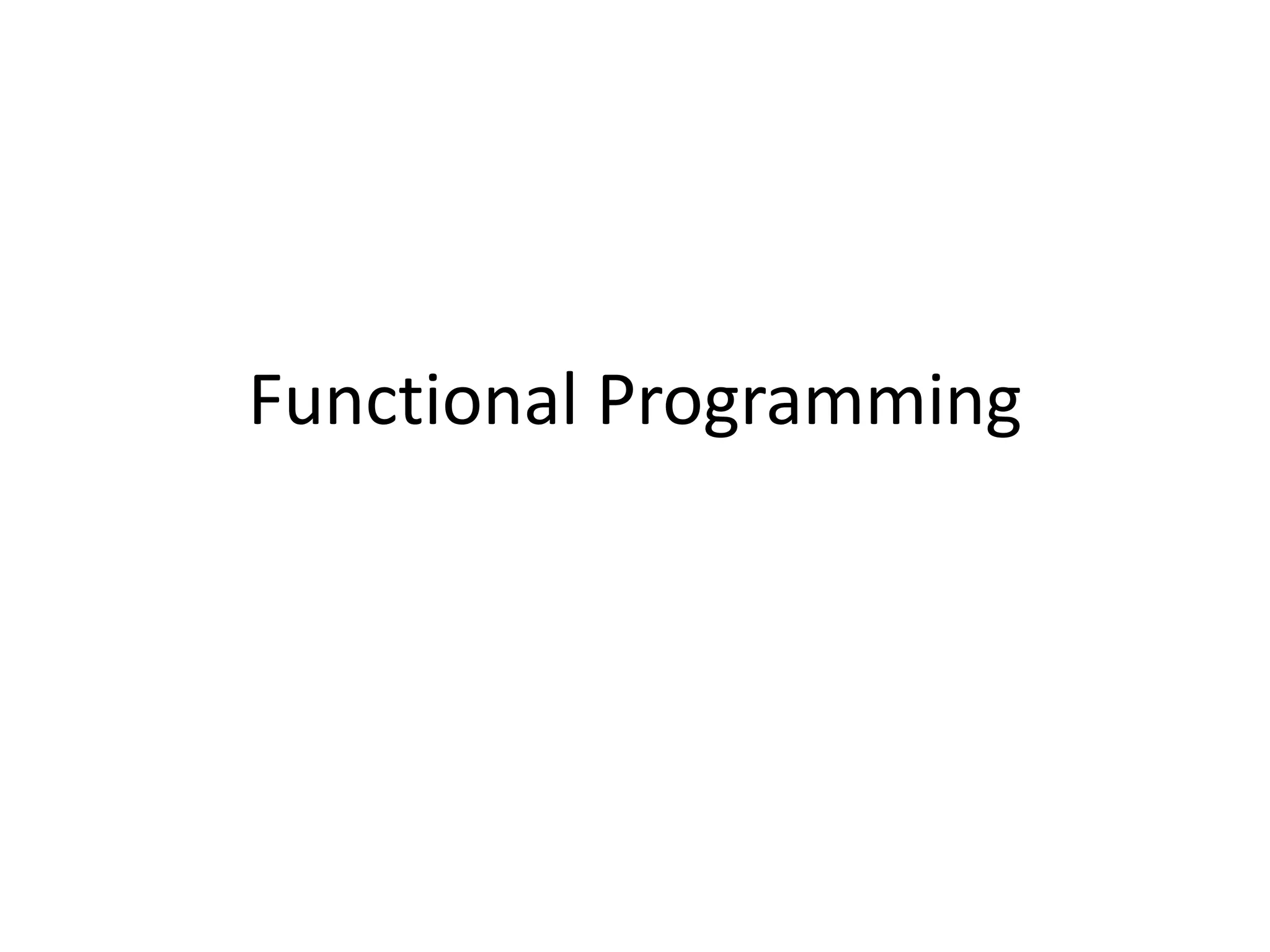
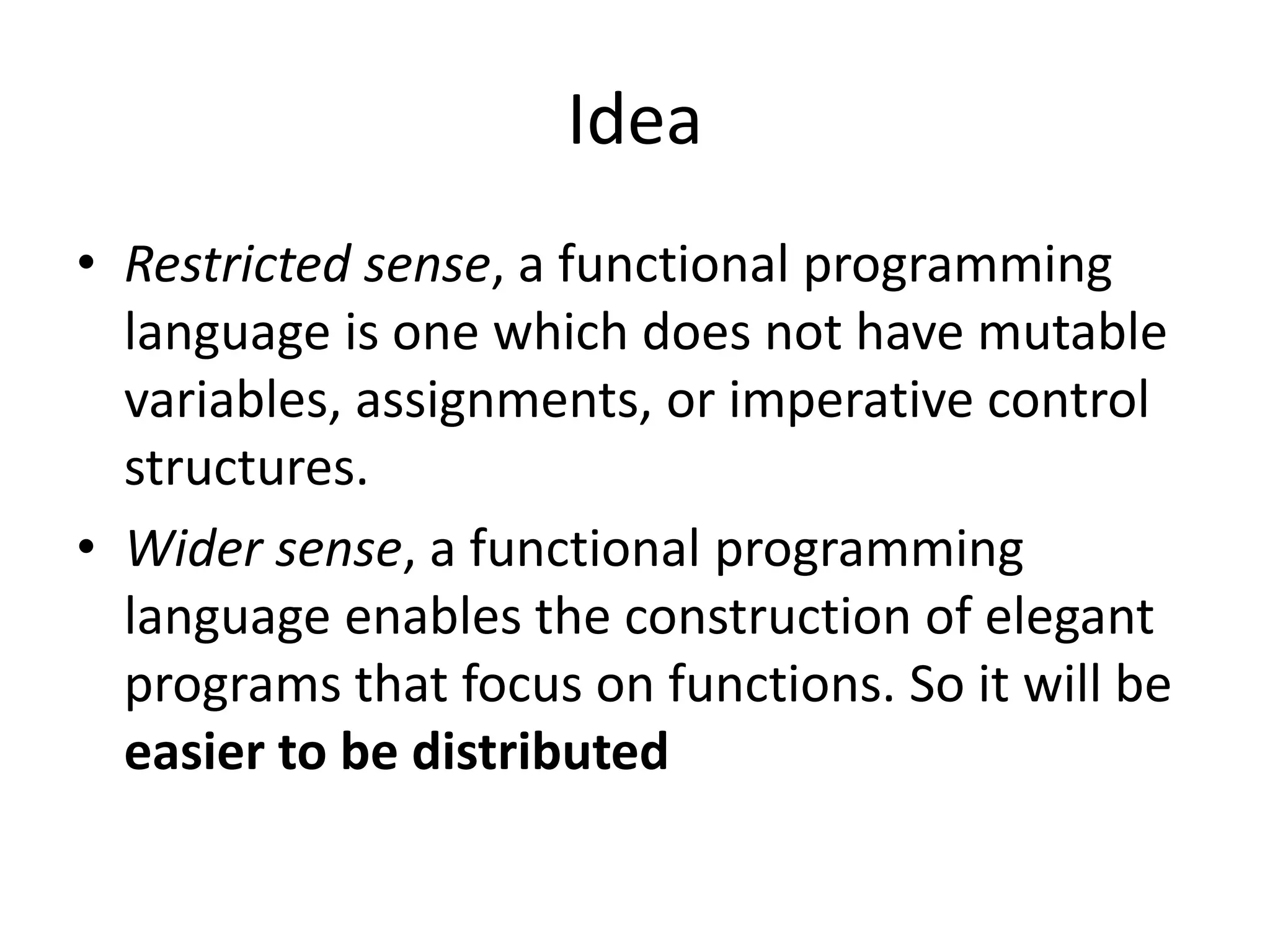
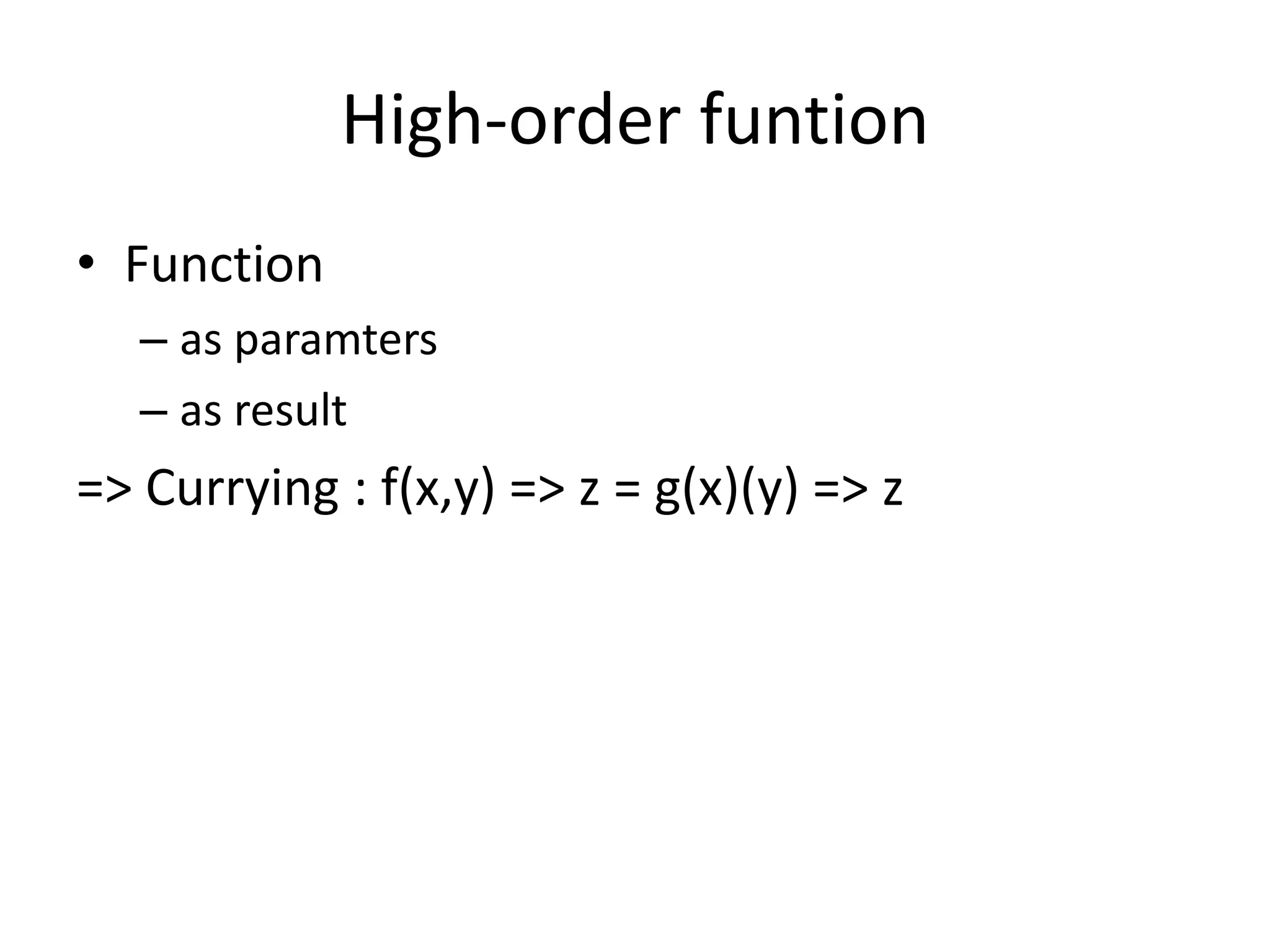
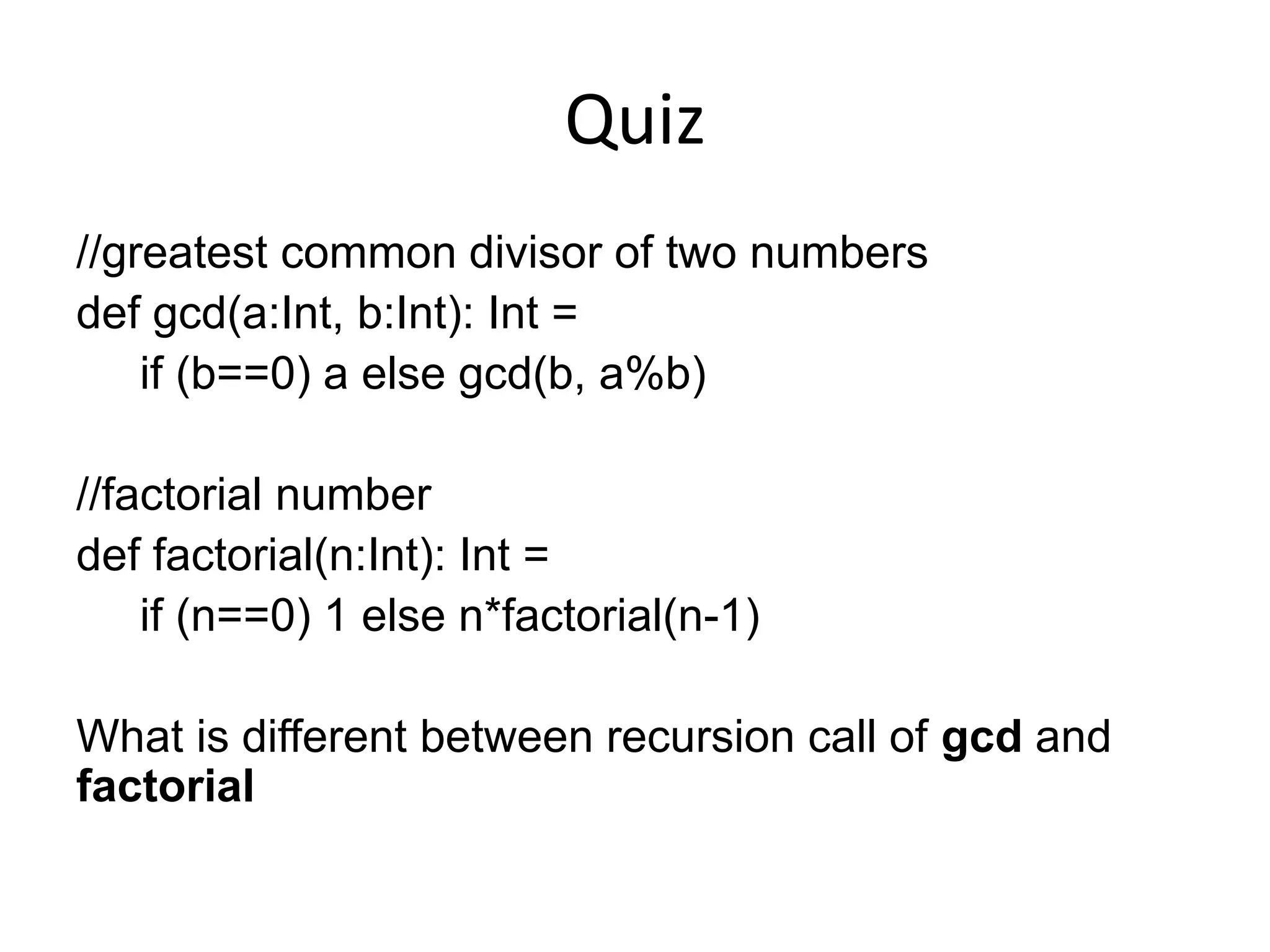
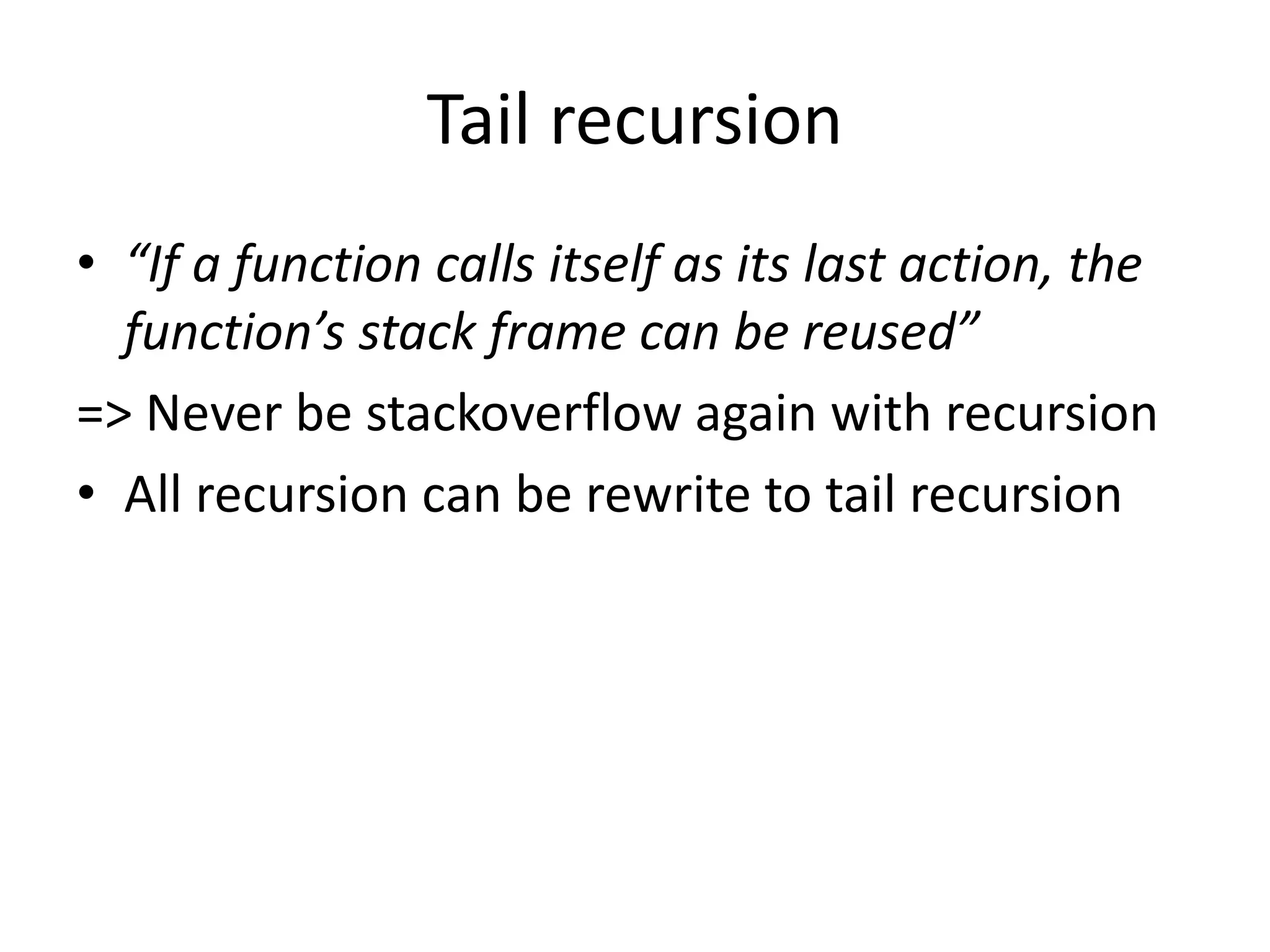
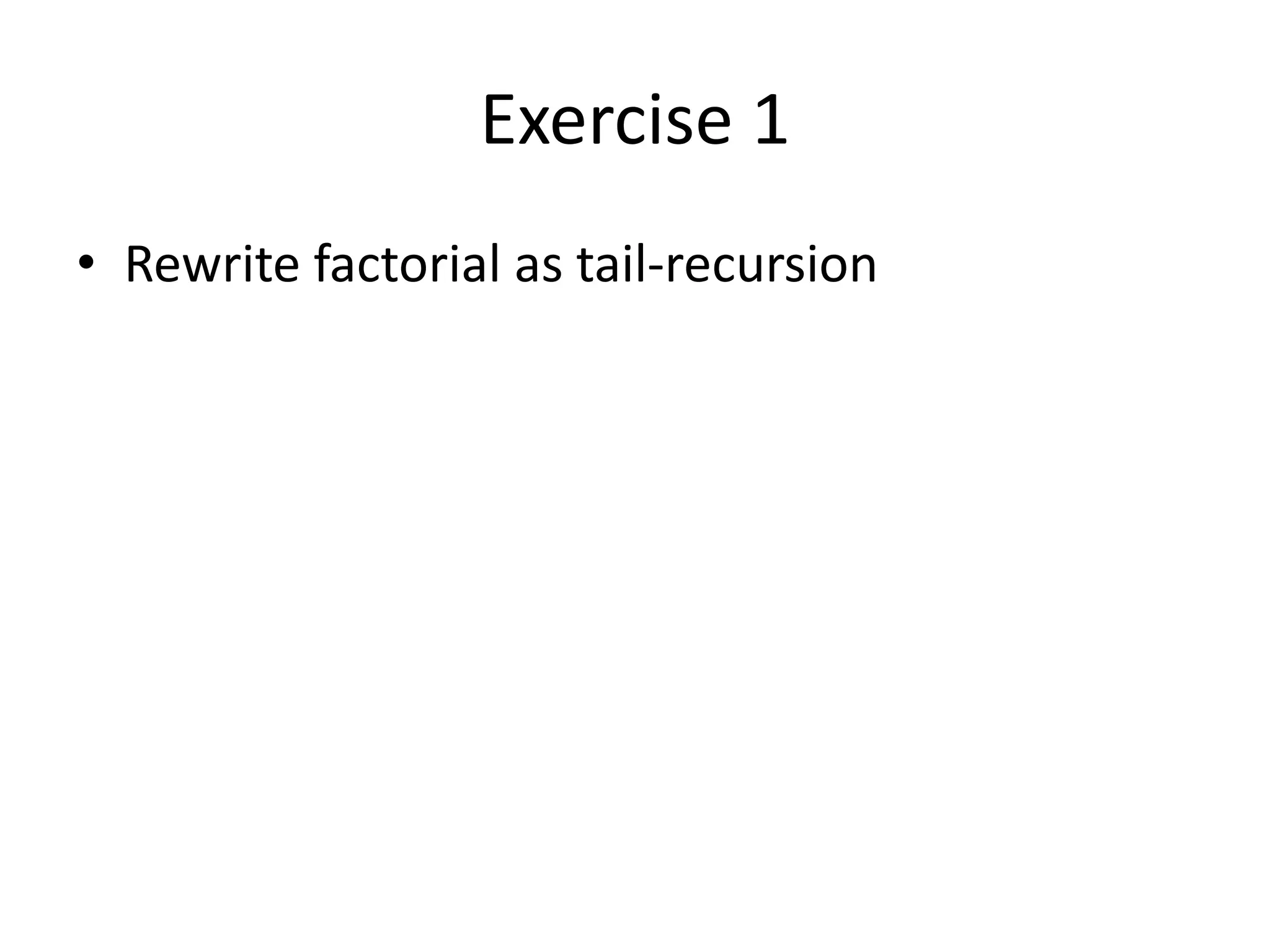
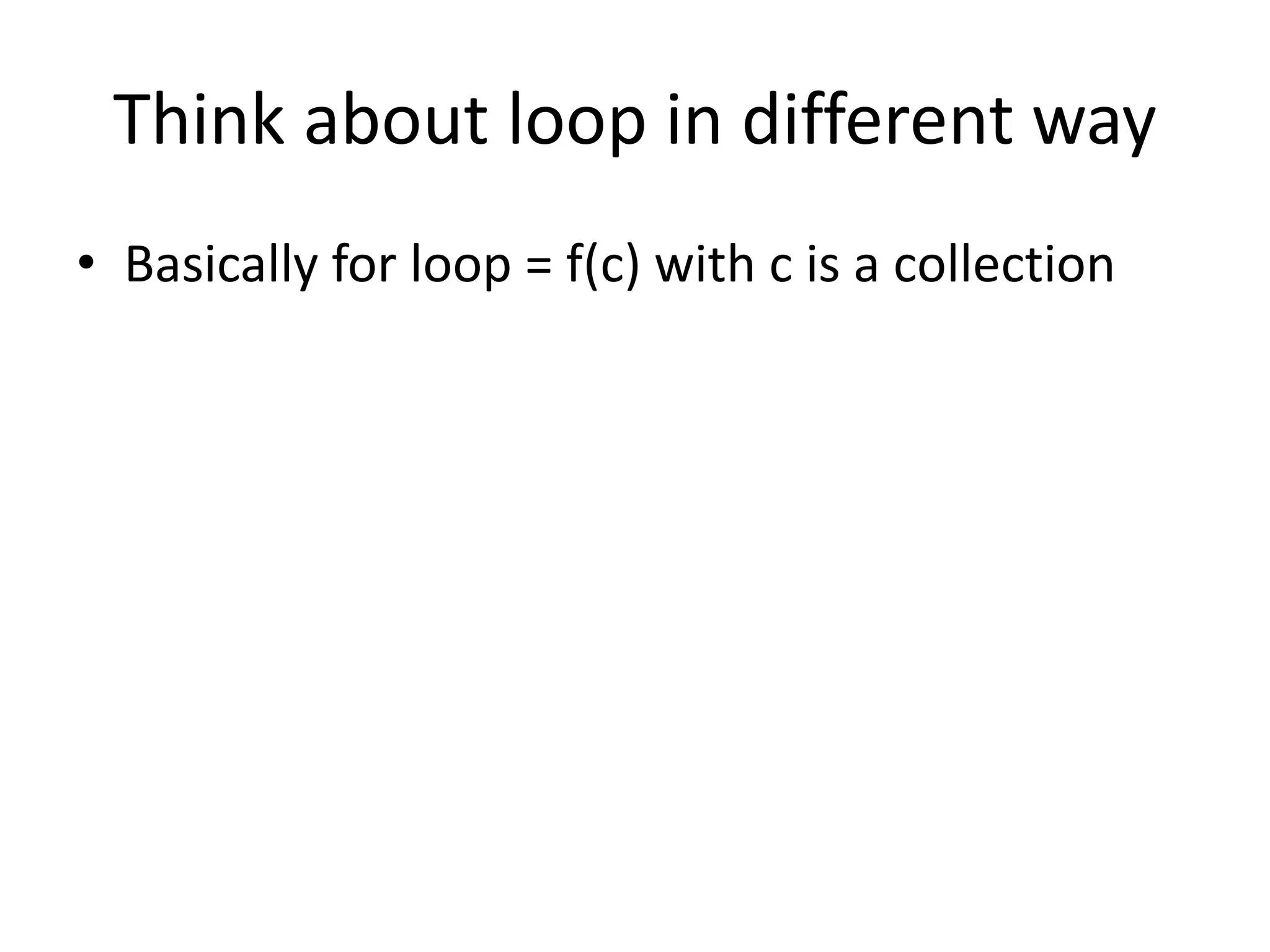
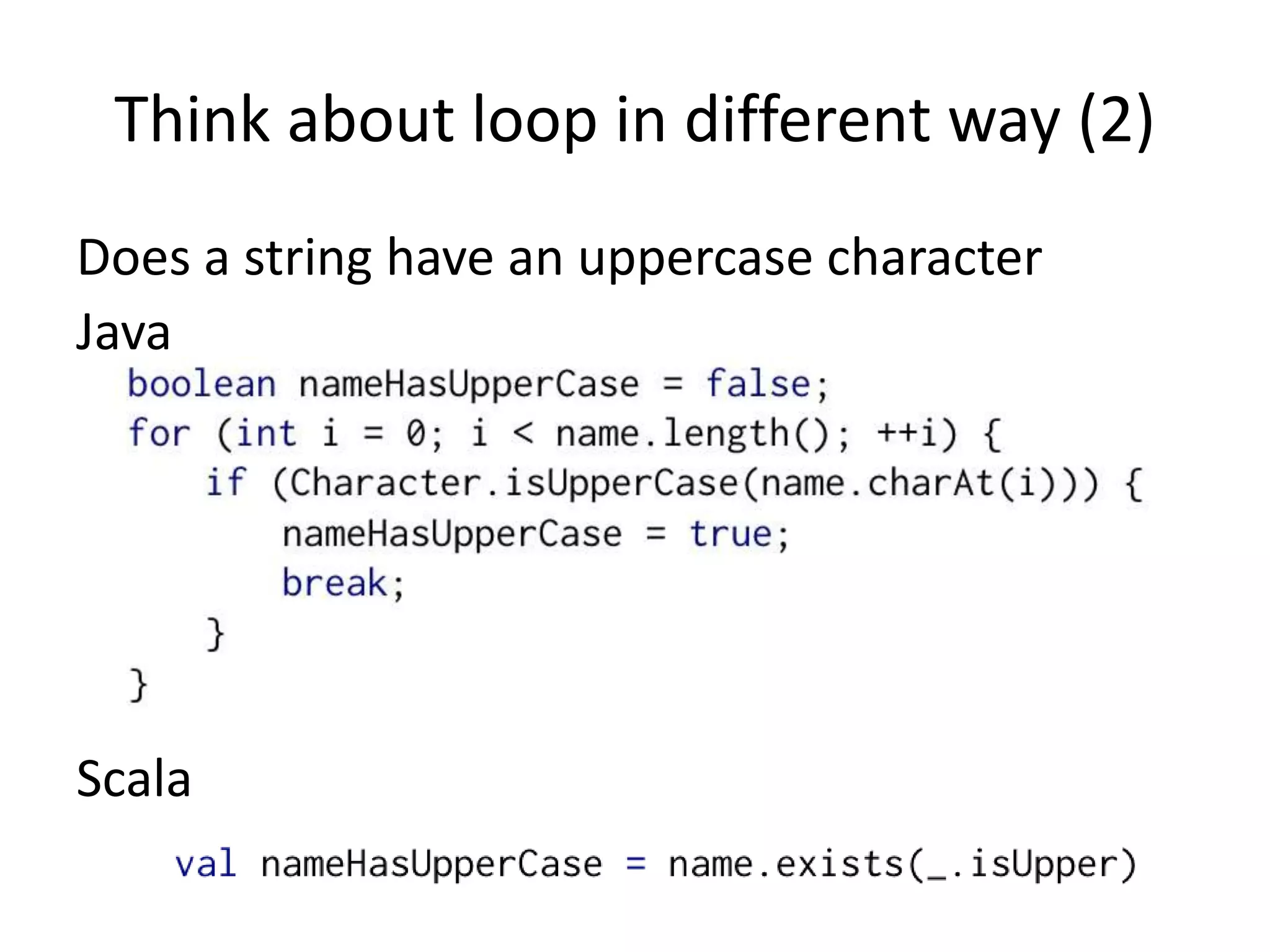
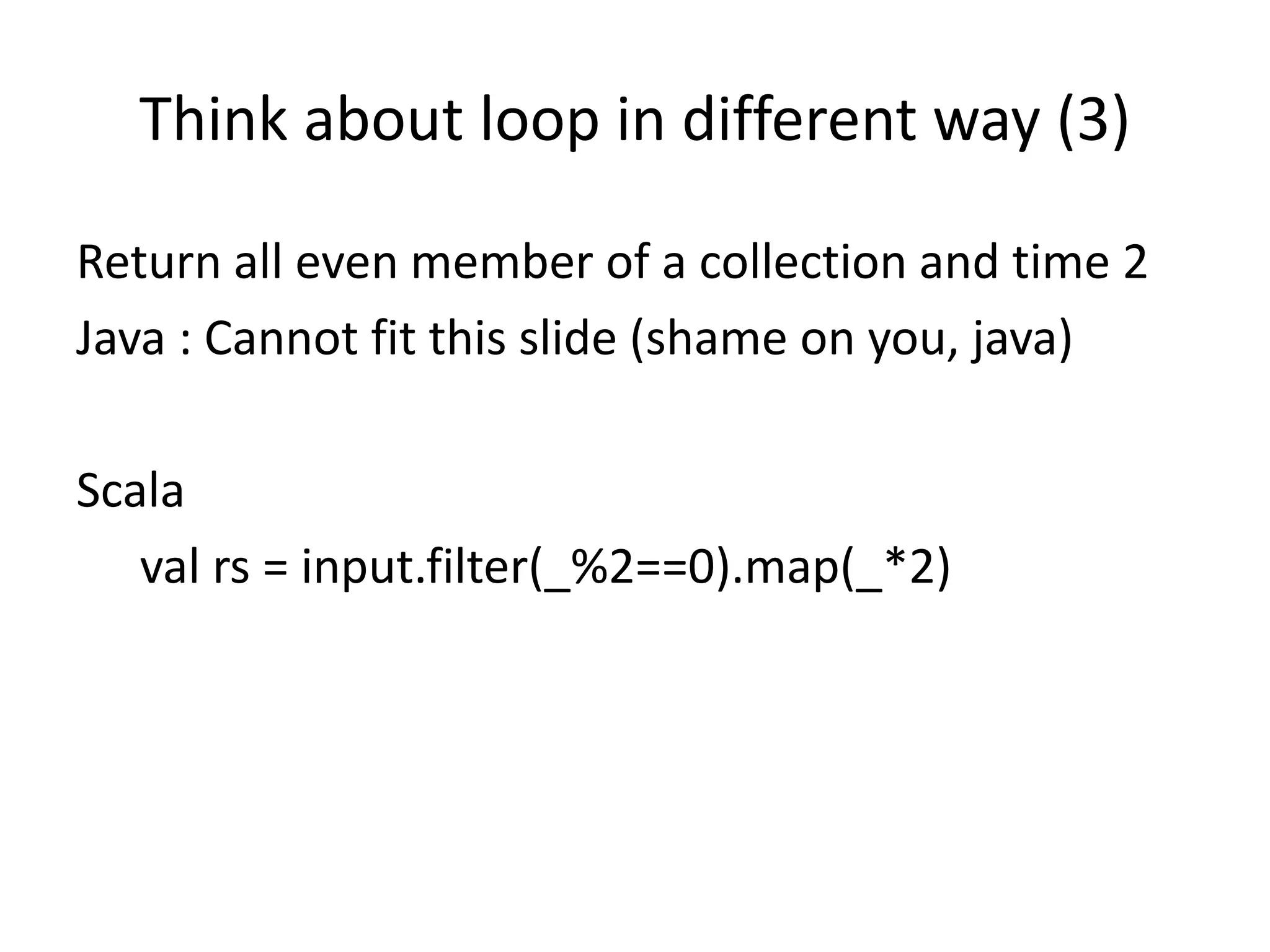
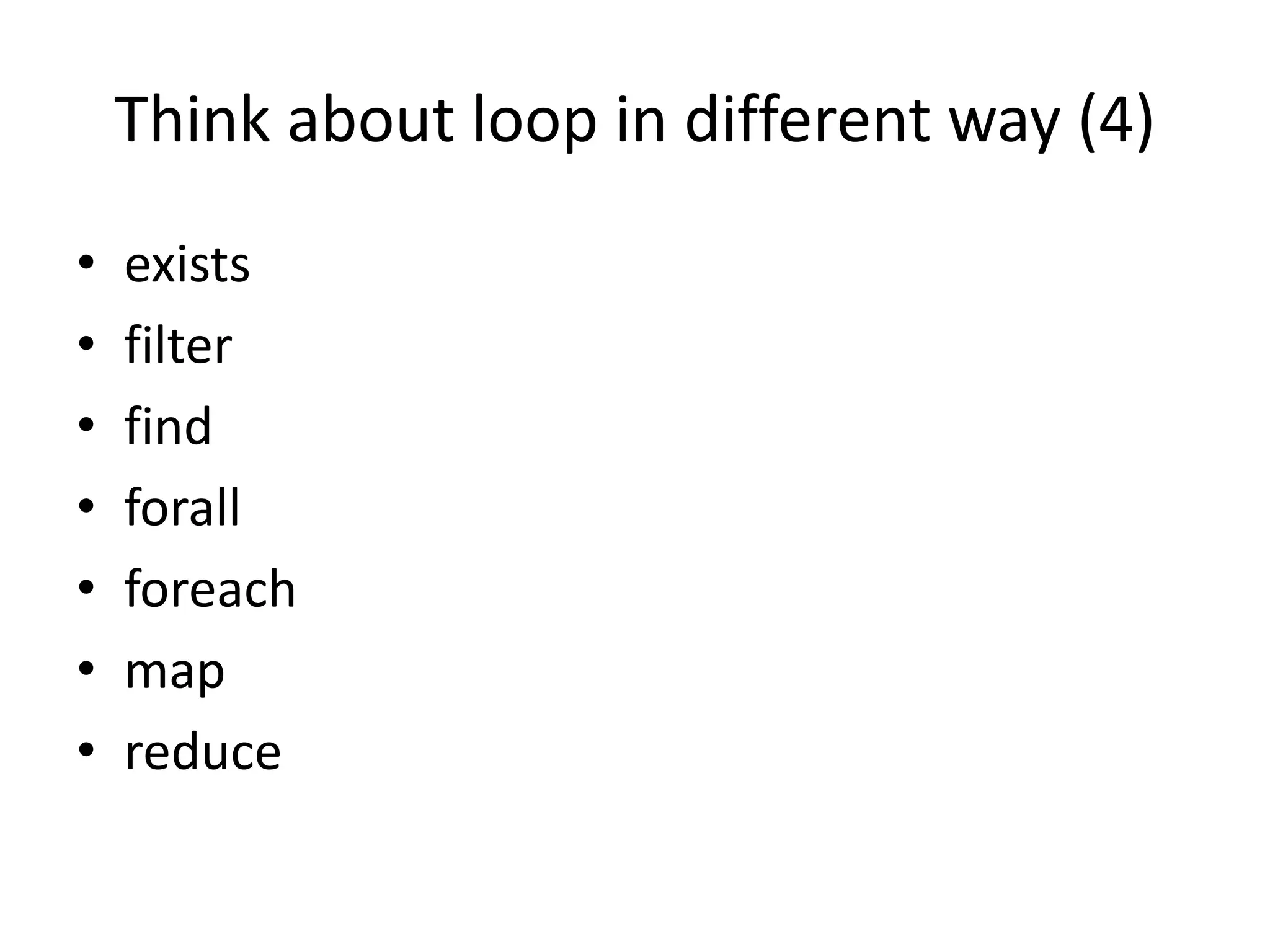

Functional programming languages restrict mutable variables and assignments, instead focusing on functions. This makes programs more elegant and easier to distribute. Functional programming supports high-order functions where functions can be passed as parameters or returned as results. Recursion in functional programming uses tail recursion to avoid stack overflows. Loops can be thought of as functions applied to collections, and many common looping tasks can be expressed using functions like filter, map, and reduce.









